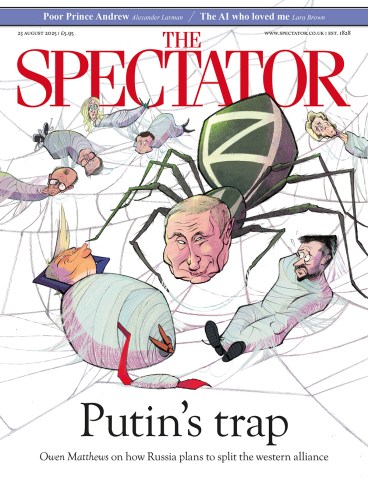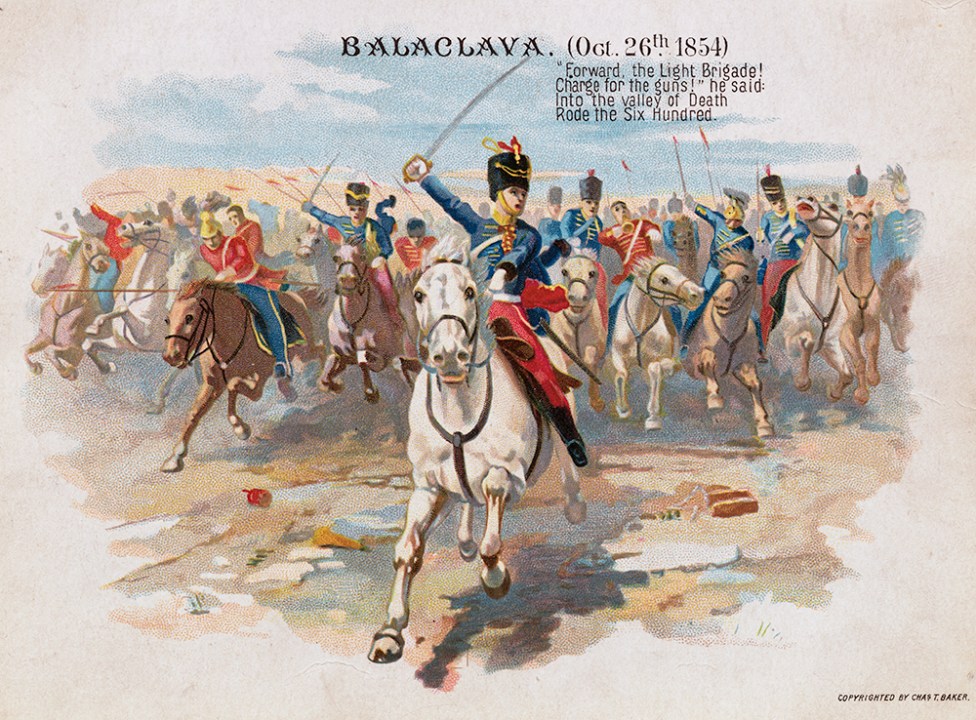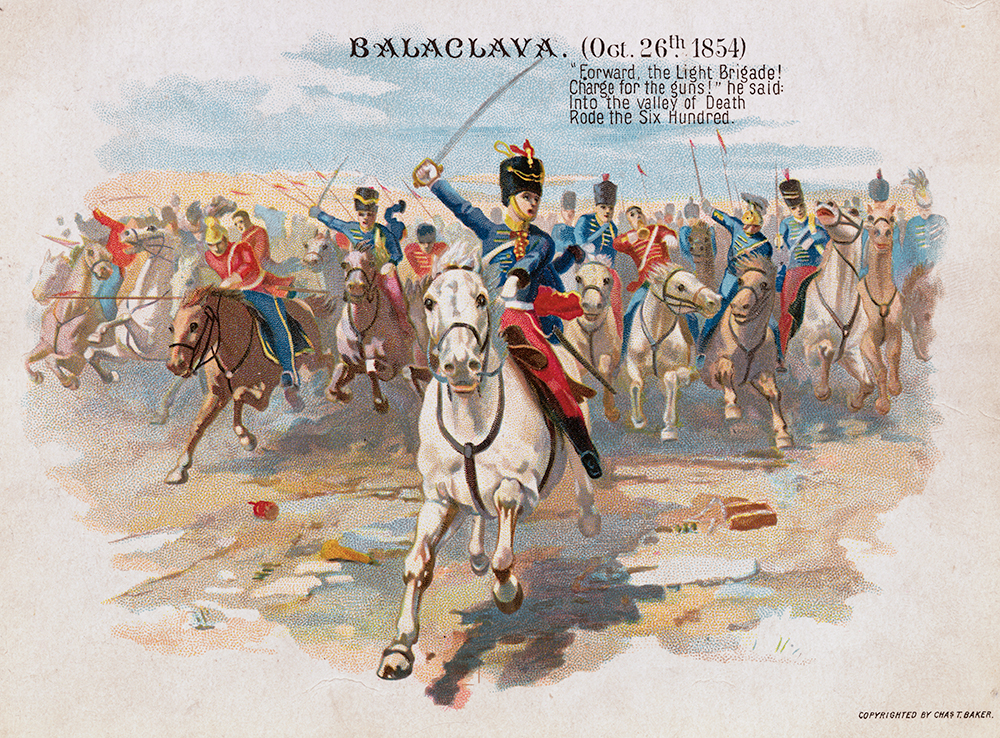
Comp. 3413 was prompted by J.G. Ballard’s story ‘The Assassination of John Fitzgerald Kennedy Considered as a Downhill Motor Race’ (itself inspired by Alfred Jarry’s ‘The Crucifixion Considered as an Uphill Bicycle Race’). You were invited to consider some event in a category to which it did not belong. It was harder than ever to choose winners; Adrian Fry, Bill Greenwell, Paul Freeman, Martin Brown, Sue Pickard, J.S.R. Fleckney, Nicholas Stone and Sylvia Fairley are a few of the runners-up. The prizes go to those below.
The Big Bang considered as a TV baking challenge
The initial cosmic oven temperature was unbelievably high. Whoever was responsible for turning it on should have read the thermodynamic instructions with more care. The particle dishes eventually cooled down, while the all-seeing Judge oversaw the creative aspects of the show to ensure things were co-ordinated. The three challenges were: a signature volcanic bake to test creativity; a technical bake which took skill and talent, especially with dark matter ingredients; and finally a showstopper with fruity neutron bombes. Two would-be stars were eliminated due to a surfeit of black holes in their sponges, while another lost out during desert week. Sadly, the baked Alaska dish was not received well. In the later stages, the fundamental forces of the strong and weak came to the fore. Various quirks and quarks combined to form exciting new recipes. Uplifting, like gravity.
John O’Byrne
Anne Boleyn’s death as an RHS seminar
Tower Green today hosted an RHS seminar on the early dead-heading of tender young blooms judged to have become expendable following their excessive and unsuitable cross-pollination.
The event culminated in a dramatic demonstration given by a visiting French expert who, despite an initial concern over the proper positioning of his main prop, performed his task with admirable speed and neatness which earned him a Patron’s Gold Award of some £23.
The said Patron, though absent due to a prior engagement, was reported to have been well satisfied with the morning’s outcome and confident that it would not deter his country’s most respected seedsmen from continuing to supply him with the most desirable specimens from their own exclusive stock. Indeed, an early replacement for the once-fragrant, though apparently unreliable, Rosa Boleynii may be announced very shortly.
Martin Parker
The first world war as a Netflix crime series
The first episode of this much talked-about crime noir opened literally with a bang, the murder of a feathery-hatted aristocrat and his wife. The hit-man is swiftly arrested, but who was behind it all? Cue then a whole range of the usual stock figures, often expendable, to come and try to sort things out, including incompetent Frenchmen who need to be rescued, until things get repetitive and the plot gets bogged down near the unlikely and insignificant river Somme. In a somewhat predictable twist in episode five, the increasingly implausible action requires some entirely new characters, of course American, to tidy it up. In an overly showy final scene set – why? – in a palace full of mirrors, the principal American, apparently called Woody, apportions rewards and blame. Every-one claims it to be ‘the end’, but it is abundantly clear that we are being set up for a second series.
Brian Murdoch
The Charge of the Light Brigade as a cricket match
Raglan gave the order. From the top of the pavilion he rang the starting bell.
When Cardigan trotted out, it was believed he had misunderstood the instructions.
He had a bad start. Dancing down the wicket to Starc he missed entirely.
Next ball he repeated the madness and was caught in the deep. Raglan looked on in horror.
As Australia brought out the big guns things only got worse.
The 13th Light Dragoons were hit hardest at first: Duckett, Crawley and Pope all fell before lunch.
Later, the 17th Lancers and the 11th Hussars took the brunt, with Brook and Smith gone by 2.30. Only Root held out till tea, when the end of the innings brought a stop to the madness.
Still, the question remained. Why had England tried to play T20 cricket in a Test match?
David Harris
It’s the Brexit round of Strictly Come Dancing, the European Union holding the floor as the UK considers a move; will she stay or withdraw? They have long been uneasy partners, out of step, missing the beat, dancing to different tempos as they struggle over who will lead. A brisk comparison of choreography; it may be a case of ‘take back control’ with the UK as the music starts. Leavers and Remainers begin to tango, pressed close, a passionate, heated dip and rise, a kick or two. Incredible tension. A battle for independence, a flirtation with staying in sync. This may be the last tango in Paris, or anywhere in Europe for that matter. The judges confer, and the Leavers waltz away with the crown, leaving the Remainers feeling slighted, shocked and boxed into a corner with little room to manoeuvre. It’s been absolute murder on the dancefloor.
Janine Beacham
The Annual Budget as a Branch of Mathematics
Sturtevant and Yang propose erecting a new branch of maths, to be known as Governmental, Impure or Speculative Mathematics, but there is more to the subject than the commonplace that cancellarian two and two do not usually make four. Consider Cook’s Variable Constant, C, (the ‘Fudge Factor’) defined as modulus (Ng – Nw), where Ng = the number you have and Nw = the number you want. Particularly interesting is the finite summation of an infinite diverging series, so that government borrowing can increase forever without repayment. A further promising development is Quantum Statistics, in which figures can be right and wrong simultaneously. The novel use of infinitesimals, as applied to spending cuts, is more controversial, but a ground-breaking use of pi, as something we can have tomorrow, but never today, exemplifies the useful creativity of the new subject.
Frank Upton
No. 3416: Throuple
You are invited to submit a passage which marries romantasy with a third genre, e.g. political thriller, comic fiction, noir (150 words max, not too rude). Please email entries to competition@spectator.co.uk by 3 September.







Comments